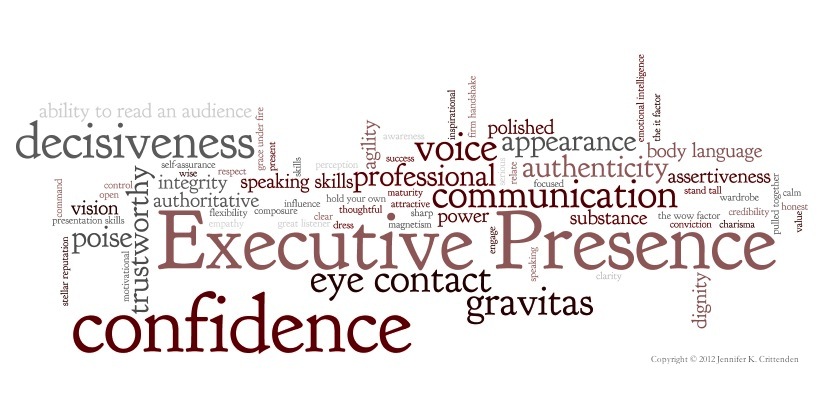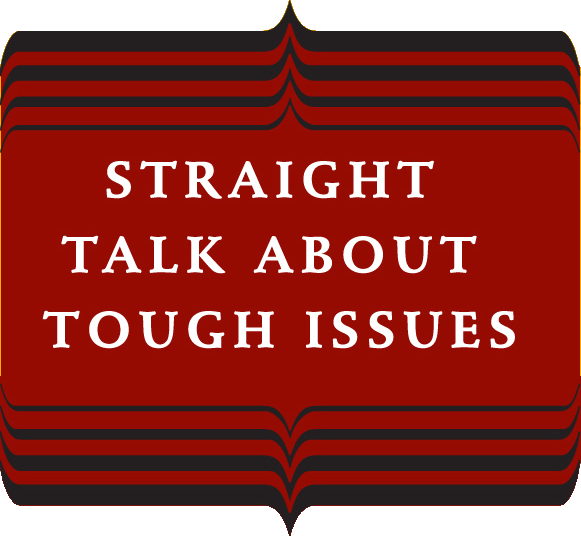Apologizing seems to have become a lost art. I see plenty of examples of fake apologies, when the apologizer goes through the motions of an apology, but somehow just barely manages to not actually apologize. But real, genuine, heartfelt apologies? I don’t see a lot of those, and they stand out because of their rarity. This means, for you, that learning how to apologize is a powerful way to stand out and continue to build your exceptional presence.
A Failure
One of the videos that I use to demonstrate executive “bloopers,” is the video in which Tony Hayward, CEO of BP, pretends to apologize for the Deepwater Horizon oil spill in which 11 people were killed and nearly 5 billion gallons of oil were dumped into the Gulf of Mexico, wreaking an ecological disaster upon the landscape that fish, birds, and people won’t recover from for generations. Not only was his attitude in front of the press one of callousness and insensitivity when he referred to the catastrophe as a “disruption,” but also proclaimed “I want my life back.” As you can imagine, the reaction was ferocious, and he was scorched in the press for his selfishness. I suspect that the wording of his “apology” had been constructed by his PR and legal team, which is why it was so awful.
After reviewing the Hayward video, a client commented to me that it seemed hard to find examples of really good apologies, and I began deconstructing why some work and some don’t.
A Classy Example
Here is an example of an A+ apology: Chad Shanks, social media manager for the Houston Rockets, put out a tweet that included a picture of a horse with a gun to its head in order to make fun of the Dallas Mavericks. He was fired the next day. Here is his apology which he tweeted that day: “Sometimes you can go too far. I will no longer run @HoustonRockets but am grateful to the organization that let me develop an online voice. I did my best to make the account the best in the NBA by pushing the envelope, but pushed too far for some and for that I apologize.” After an outpouring of support, he followed with “You all have no idea how much all this support means. Doesn’t excuse my not thinking before tweeting, but it has been much appreciated.” This apology worked because:
-
-
- He apologized immediately
- He took responsibility
- He explained what happened
- He seemed genuinely sorry
-
And the icing on the cake was that he showed real class by thanking his employers who had fired him. That shows what a big person he is which is an important component of a good apology. A real apology shows self-confidence. He also has a sense of humor and now includes on his Twitter account profile, “Known for shooting a fake horse with a fake gun.”
In contrast, the video from Hayward failed on each of these counts: He waited a month and a half before he issued the apology, he did not take responsibility, he attempted to obscure the tragedy, and his comment about the effect on his personal life didn’t make him look sorry at all.
Another Failure
Let’s look at another recent apology, one by President Obama when the U.S. bombed the heck out an Afgan hospital, killing nearly two dozen people, burning patients in their beds during repeated strikes, even though the GPS coordinates for the hospital had been provided to the military before and during the bombardment. Two days after the bombing, he expressed “deepest condolences” to the families, calling it a “tragic incident.” Three days later, he called Doctors Without Borders to apologize after an American commander testified before Congress that the strike had been a U.S. decision. Doctors Without Borders issued a press release noting that the apology had been “received” but were clearly unimpressed. I would suggest that his apology failed also on our four important apology counts: His apology was late, he didn’t take responsibility although he is the commander in chief of the military, he didn’t explain how this happened and appeared resistant to an outside investigation, which made him come off as not really very sorry.
And Yet Another Failure
Another example of a surprisingly poor apology is a video issued by Netflix after the company abruptly jacked up the prices of its services, angering its customers. The video worsened the situation because of the execs’ casual attitude and their suggestion that the only mistake had been how they communicated. The CEO emphasized that even if he had “communicated,” it still wouldn’t have changed anything, the price increases would still have gone into effect. That’s insulting. If customers weren’t ticked off before, they sure were now.
Then, if that weren’t awkward enough, he issued a letter which began, “I messed up. I owe you an explanation…many members felt we lacked respect and humility in the way we announced the price changes…that was certainly not our intent, and I offer my sincere apology.” So, he’s apologizing for—for what exactly? That people felt bad? See, that’s not a real apology. That’s just saying, “I’m sorry you feel that way.” People are very sensitive to that kind of subtle condescension, and millions of customers cancelled their Netflix subscription.
A Successful Apology
I did find another good apology example in the aftermath of JetBlue’s stranding 130,000 customers, some for more than 8 hours on the tarmac, during a severe winter storm on Valentine’s day 2007. The airline took out a series of ads that began, “We are sorry and embarrassed. But most of all, we are deeply sorry.” The ads continued, “The storm disrupted the movement of aircraft, and, more importantly, disrupted the movement of JetBlue’s pilot and inflight crew members…We know we failed to deliver on [our] promise last week.” Founder and CEO David Neeleman issued a video apology in which he announced a customer bill of rights that included monetary compensation for those customers who were stranded or whose flights were cancelled, in that instance and in the future. It remains in place today. Interestingly, the video apology appears, not exactly spontaneous, but not over-rehearsed, and its believability is thereby enhanced.
Sorry Seems to Be the Hardest Word
Some confusion arises about apologizing because some people equate apologizing with failure or a lack of pride. This comes from the John Wayne school of etiquette who is quoted as saying, “Never apologize, mister, it’s a sign of weakness.” Women are often counseled not to apologize in the workplace for fear of looking weak. To women who are accustomed to saying “I’m sorry” when something goes wrong, this can be inhibiting and confusing. Those women aren’t intending to take responsibility for something that has happened; they are simply expressing their sympathy for a person wronged or hurt. Hence, they may say, “I’m sorry” when they hear that someone’s kitty died—it doesn’t mean that they actually killed the cat.
Perhaps because this is the age of litigation, people appear reluctant to apologize, as though that would be an admission of guilt, although I have yet to see a legal case won because the defendant accidentally said the words, “I’m sorry.” After a fellow skier hit me from behind, I was astonished that during the ensuing interaction in which I retrieved her poles for her and asked her if she was okay, she never once apologized. I speculated that she must have been an attorney—or a jerk.
On the flip side, there are those “apologies” that are so flippant that they come across as more of a denial than as an acceptance of responsibility. These are of the “my bad,” or “sorry, dude” ilk, tossed off so casually that a truly injured party would feel more slighted than acknowledged.
Strange Uses of Sorry
And we have the bizarre usage of “I’m sorry” in sentences like, “I’m sorry but…” as in “I’m sorry but you’re a jerk.” I’m not sure what that is—trying to soften the blow? apologizing in advance for what will surely be a disagreeable exchange? expressing regret for an unpleasant fact of life? Whatever that is, it’s not a genuine apology for anything.
Another strange usage is the common “I’m sorry if…” This is often found in the context of “I’m sorry if anyone was offended by my comment.” This throwaway off-hand non-apology covers a lot of territory without actually expressing regret about something that actually happened. Like the communication blame-game in the Netflix example, there’s also an implication that anyone who was offended is somewhat irrational and overly sensitive. That pretty much wipes out any apology points.
I Am Worthless Scum
Finally, we have the apologies that go too far, that are so self-denigrating that the apology becomes an embarrassment. The apologizer throws himself on his sword, crying for mercy and forgiveness, and effectively begging for the offended party to come to the rescue. The progression from “I screwed up” to “I’m a screwup” to “Everyone hates me” is so transparently manipulative that the genuineness of the apology is questionable.
That’s a Wrap
An effective apology contains four important components:
-
-
-
-
-
It’s speedy
-
It takes responsibility
-
It tells what happened
-
It’s genuine
-
-
-
-
You can evaluate apologies, your own and others’, to determine what constitutes a real apology.
© Copyright 2015 Jennifer K. Crittenden





 Ten 90-minute individualized sessions. Private and confidential.
Ten 90-minute individualized sessions. Private and confidential.


Ken D
/ September 1, 2017I very much appreciated this post. l was expecting an apology from a neighbor whose large dog jumped my fence and pinned my 15 year old small dog on the deck. Instead he blamed my son and called me “goofy” I still don’t understand his mindset but it sounds less like he is not the only one.
Ren D.
/ December 9, 2018I would argue that the Houston Rockets employee negated his apology by throwing in the words “for some” in the sentence, “I did my best to make the account the best in the NBA by pushing the envelope, but pushed too far for some and for that I apologize.” By adding those words he reduced the emphasis of his error as the reason for apologizing and instead placed it on the ‘for some’ who were offended. Furthermore, the fact that he continues to use the ‘fake gun, fake horse’ on his Twitter account suggests he still finds humor in it and an overall lackadaisical attitude of regret. Personally I would try to bury and move on from any offense I committed once amends have been made. I understand he may be using it as a visible reminder of a bad decision, but there are better and private ways to do that.
So an apology of his kind may suffice for the business world but I still see it as a “sorry that you were offended” type. Let’s face it: apologies from corporate entities will never be of a truly repentant nature. They are offered out of authoritarian obligation in order to save face.
jeff
/ December 12, 2018Hi Ren, you make several good points. The “for some” did weaken the apology. Retaining the “fake gun, fake horse” also sends a mixed message about his sincerity. In retrospect, especially with our increased sensitivity about gun violence, it doesn’t seem very funny or thoughtful.
Sue
/ June 19, 2020The lack of a sincere apology, especially soon after the offense, can destroy even the longest and strongest friendships. The most erroneous phrase ever coined is: “Love means never having to say you’re sorry.” (Love Story, movie)
Anonymous
/ December 6, 2020This is true.
I’ve had people in my community call me out on the carpet for whatever (as a city volunteer) in front of everyone else, then everyone else got mad at me and when I showed definitive PROOF I wasn’t wrong but THEY certainly were, I never, ever got a single apology. From anyone, for any of the wrong slap-downs and wrong accusations. They just brushed it off and kept going forward. I worked as a volunteer roughly 60-80 hours a month for these people and often as the only person who ever showed up for anything for 10 years with no pay. Well, I finally quit two of the three positions I held for many years because I was getting burnt out. They became mad at me because other city administration volunteers (who just came to meetings once or twice a month, that’s it) would have to take up my duties and I’m the only person who knows how to do about 80% of what needs to be done, but damn, what was I to do? Their reaction was to take the last position from me, the one I did as my passion (I’m a recently retired Firefighter/Paramedic after Neely 40 years in the field) and I did a lot of work (I built their fire department up from scratch as there is nothing else for 40 minutes in any direction). I brought in hundreds of thousands of dollars in equipment, resources, training (I’m an instructor), people, etc., injured myself a bunch helping them and the community and I really got off on helping create the city’s successes that I had a little part to play in. I had hoped to retire from public service with a tiny celebration with my team but council was all pissy. As a result many of the team quit (most of whom routinely travelled in for hours to help us out on shifts and other great stuff) as they said they were here because of me (which really touched my heart, as these are my friends and professionals from other departments helping out rural volunteers). Every single time I’ve been improperly called out on the carpet I’ve never gotten any apology for and my reputation struggled because of it. I apologize for my mistakes and I really try to learn from them. However, I’m sick and tired of being everyone’s whipping boy when they’re frustrated out of some self-perceived slight on my part. I get it that when you’re the boss of anything you wear a target on your back but I was just blown away by the sheer arrogance and ignorance of people. Screw them. I will never volunteer to help with anything ever again. I’ve learned if I do something really well, I shouldn’t be doing it for free. Too much give and inch, they take a mile and when they trip you along the way, they act like it never happened. These are toxic types of people and I’m so glad I no longer have to deal with them.
jeff
/ December 22, 2020Wow, I am really sorry to hear this story. I have sometimes wondered if volunteers are treated particularly badly — there’s a saying in the small rural town where I live part of the year that “no good deed goes unpunished” — and sometimes it seems sadly true. I have found however that there often are people who appreciate what leaders do, even if they are not as vocal as the toxic types. It is very moving that your team appreciated you, and surely that matters most…